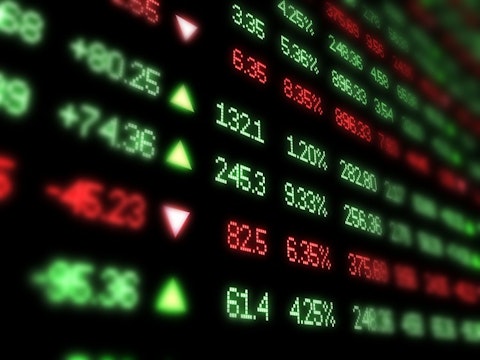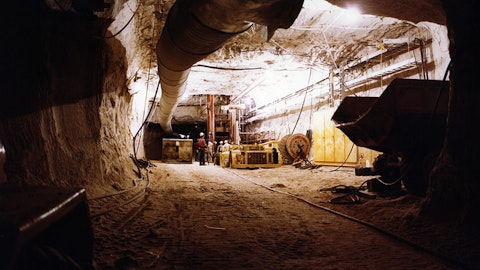The Federal Reserve hinted at the two-day policy meeting that a December rate hike is still probable, so the futures markets currently assign a 50% probability on a rate increase by the end of the year. It is true that the U.S. economic data have not been promising lately, and the Fed officials acknowledged this fact in their statement on Wednesday. However, it is anticipated that a potential tightening of the labor market will most likely result in a higher inflation rate, which will enable the Fed to raise interest rates for the first time in almost ten years. A possible completion of the “cheap money” era might put a halt to the current bull market, but it is almost impossible to predict how a rate hike will affect the numerous sectors within the U.S. economy. Leaving the discussion about the Fed and its monetary policy aside, certain corporate insiders have been acquiring more shares lately, which could somewhat point to the fact that they believe in their companies’ future financial performance. At the end of the day, why would anyone pour cash into stock markets without expecting any gains? Hence, the following article will discuss the insider buying activity at three companies and potential reasons behind insiders’ moves.

AshDesign/Shutterstock.com
Most investors can’t outperform the stock market by individually picking stocks because stock returns aren’t evenly distributed. A randomly picked stock has only a 35% to 45% chance (depending on the investment horizon) to outperform the market. There are a few exceptions, one of which is when it comes to purchases made by corporate insiders. Academic research has shown that certain insider purchases historically outperformed the market by an average of seven percentage points per year. This effect is more pronounced in small-cap stocks. Another exception is the small-cap stock picks of hedge funds. Our research has shown that the 15 most popular small-cap stocks among hedge funds outperformed the market by nearly a percentage point per month between 1999 and 2012. We have been forward testing the performance of these stock picks since the end of August 2012 and they have returned more than 102% over the ensuing 3 years, outperforming the S&P 500 Index by more than 53 percentage points (read more details here). The trick is focusing only on the best small-cap stock picks of funds, not their large-cap stock picks which are extensively covered by analysts and followed by almost everybody.
To start with, Actuant Corporation (NYSE:ATU) has seen four different insiders acquire stock so far this week. Executive Vice President and Chief Financial Officer Andrew Lampereur purchased 16,900 shares on Monday and 8,000 shares on Tuesday at prices ranging from $21.24 to $22.25, enlarging his stake to 295,608 shares. Roger Roundhouse, Executive Vice President-Engineered Solutions Segment, bought 9,200 shares on Monday at a weighted average price of $21.74 and currently holds 24,278 shares. Moreover, EVP-Human Resources Eugene Edward Skogg acquired 8,076 shares on the same day at $21.5 apiece and boosted his holding to 34,720 shares. Finally, Brian K. Kobylinski, who serves as Executive Vice President of Industrial Segment and China since December 2013, added 30,000 shares, bought at a weighted average price of $21.14, to his holding that now comprises 127,441 shares. Actuant Corporation (NYSE:ATU)’s operations and activities are closely-tied to several struggling end-markets such as oil and gas, mining, and agriculture. As a result, the diversified industrial company has seen its stock decline 18% year-to-date, but the stocks is trading cheaply at the moment, considering its forward P/E ratio of 13.97 (compared to median of 18.41 for the S&P 500). Ken Griffin’s Citadel Investment Group held a 875,388-share stake in Actuant Corporation (NYSE:ATU) at the end of the second quarter.
The next page of the article divulges the insider buying activity at two other companies.





